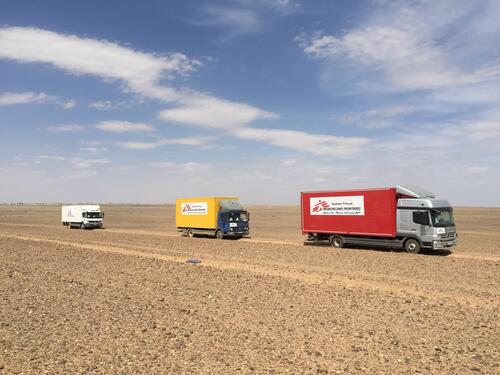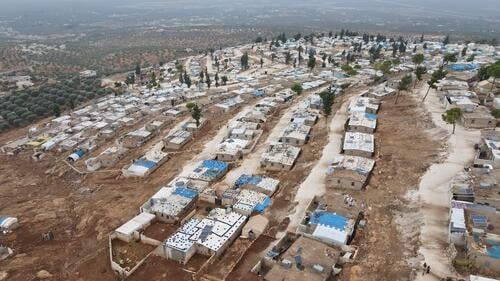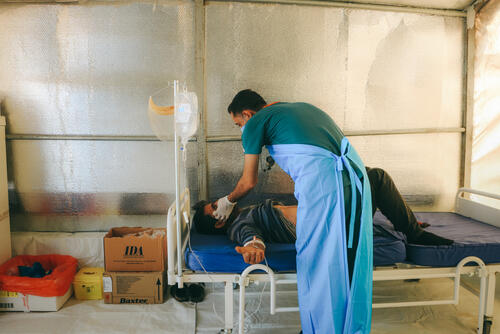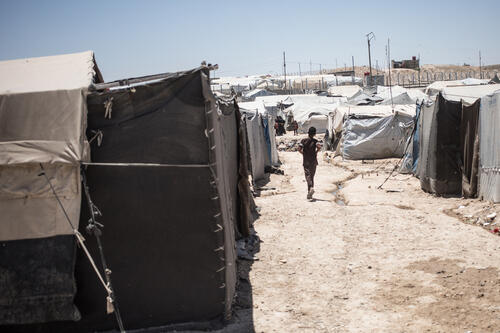Update: On 8 July 2022, Russia vetoed a draft resolution that would have extended cross-border aid for another year. On 12 July, after several rounds of negotiations, the Security Council renewed the resolution for six months only, instead of 12 months as originally proposed. Now, any further extension will depend on a new Security Council vote in January 2023. The decision of the UNSC is absolutely vital and essential for people in northwest Syria. However, doing so for six months only is insufficient and concerning.
- MSF calls on the United Nations Security Council to renew the cross-border resolution for the provision of humanitarian aid through the Bab Al-Hawa crossing point into northwest Syria.
- Sixty per cent of people residing in this area risk losing access to desperately needed humanitarian and medical aid if the resolution is not renewed.
Amman - Médecins Sans Frontières (MSF) calls on the United Nations Security Council (UNSC) to renew the cross-border resolution (UNSCR 2585) expiring on 10 July 2022, for the provision of humanitarian aid into northwest Syria.
Around 60 per cent of people residing in this area, more than half of whom are internally displaced, risk losing access to desperately needed humanitarian and medical aid if the resolution is not renewed.
Today, Bab Al-Hawa crossing on the Syria-Turkey border is the only approved humanitarian crossing point into northwest Syria. By 10 July 2022, the resolution will be submitted to a vote and this last access route into northwest Syria is at risk of being closed.
The ever-looming threat of a non-renewal of the cross-border resolution hangs as a Damocles sword over people in northwest Syria.Claire San Filippo, MSF head of mission in Syria
Failure to renew the cross-border resolution would further aggravate the already desperate humanitarian situation in northwest Syria. According to the UN, out of 4.4 million people living in northwest Syria, 4.1 million need humanitarian aid and 3.1 million need healthcare assistance. Access to medical care remains challenging for many due to insecurity, distance to the health facility and the cost of services or transportation. Every month, cross-border operations support 2.4 million people.
“The ever-looming threat of a non-renewal of the cross-border resolution hangs as a Damocles sword over people in northwest Syria against the backdrop of overwhelming humanitarian and medical needs and a severe economic crisis,” says Claire San Filippo, MSF head of mission in Syria.
“The UN Security Council must renew lifesaving cross-border operations. If this lifeline is cut off, the access to basic food, water and healthcare of millions will be drastically reduced. This will lead to preventable deaths,” says San Filippo.
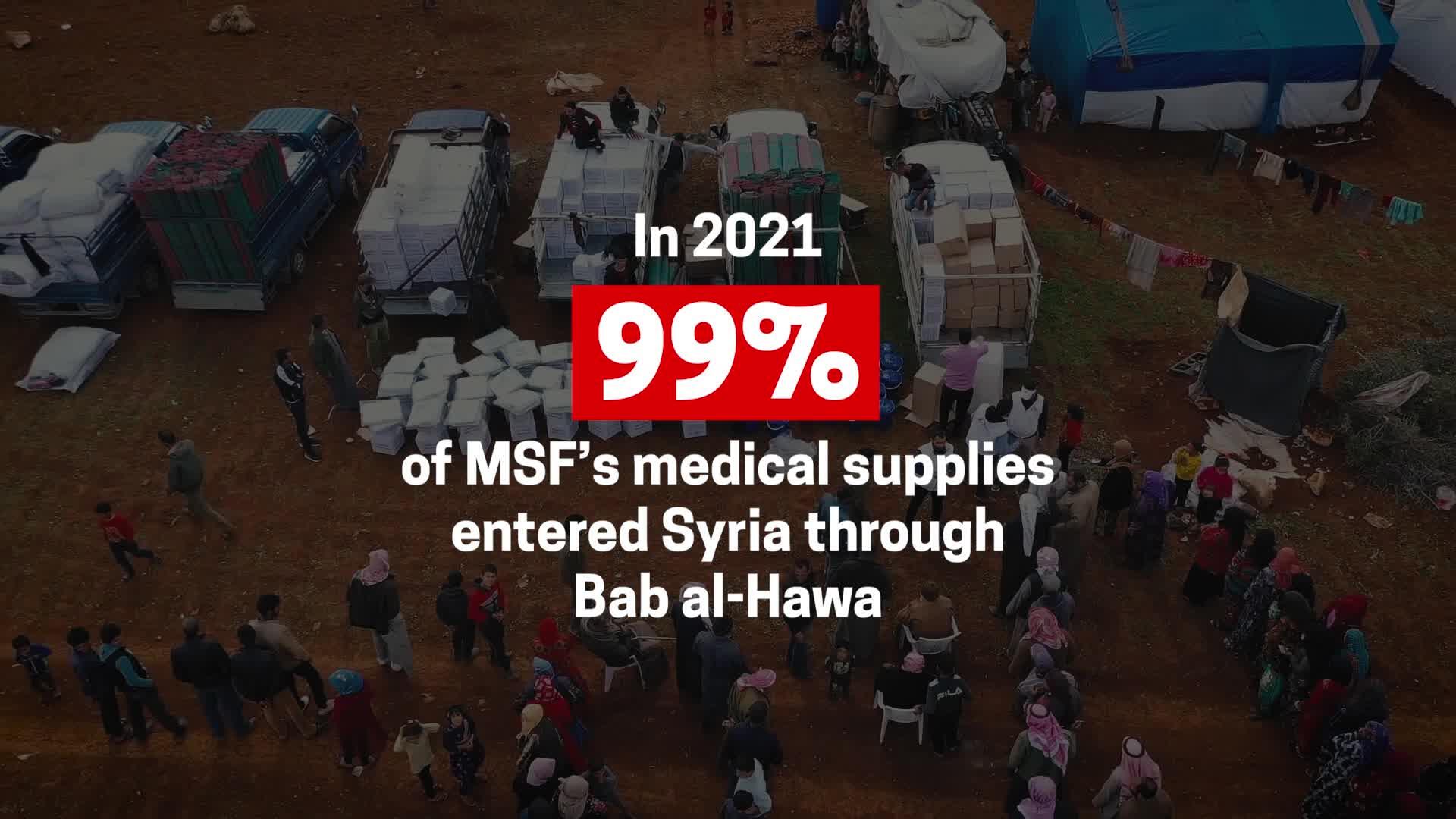
Bab Al Hawa crossing must stay open
In 2021, over 99 per cent of MSF’s humanitarian supplies into northwest Syria have been shipped through Bab Al-Hawa. If the resolution is not renewed, most hospitals and health facilities would lack the necessary medical supplies to operate, and patients’ lives would be put at risk. MSF will be forced to revise the scale and quality of health support provided in northwest Syria and will no longer be able to provide the current volume of response.
Eleven years of conflict, the COVID-19 pandemic, the worsening economic crisis, sanctions, and the ripple effects of the war in Ukraine on the price of food and fuel, have further worsened the living conditions of the people in Syria. According to the UN, more than 14.6 million people in Syria need humanitarian aid, an increase of 1.2 million from 2021. Food basket prices are skyrocketing, registering the highest ever recorded average price since monitoring started in 2013. Ninety per cent of people remain under the poverty line.
Sending aid through the Bab Al-Hawa crossing point remains the fastest, most effective, transparent and least expensive way for humanitarian aid to cross into northwest Syria. There is currently no viable alternative to this mechanism. MSF calls on permanent and non-permanent members of the UN Security Council to renew the UNSCR cross-border resolution (2585) for the provision of humanitarian aid through Bab Al-Hawa into northwest Syria.



